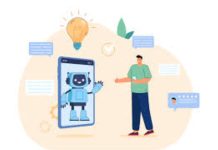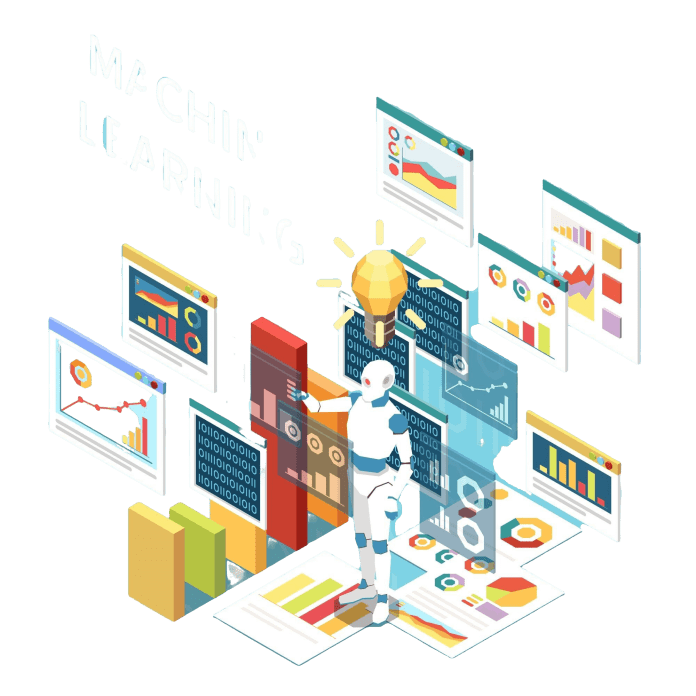The world of B2B marketing has undergone a radical transformation in recent years, with new technologies driving massive changes in how companies generate, manage, and nurture leads. One of the most significant developments in this field is the integration of Artificial Intelligence and Machine Learning into B2B lead scoring systems.
These advanced technologies are transforming the way businesses assess and prioritize leads, offering more precise, data-driven insights that lead to smarter decision-making and improved ROI.
What is B2B Lead Scoring?
B2B lead scoring assigns numerical values to potential customers based on their likelihood to convert into paying customers. Factors include demographics, company size, marketing content engagement, and sales team interactions. Traditionally, lead scoring was a manual, subjective process, relying on sales and marketing teams’ experience and intuition.
However, with the advent of AI and ML, B2B lead scoring has evolved into a much more sophisticated and automated system. AI and ML utilize vast data and advanced algorithms to analyze complex or numerous factors in real time, surpassing human analysts’ capabilities. This leads to more accurate and actionable insights, allowing businesses to focus on the leads most likely to drive revenue.
How AI and Machine Learning Are Transforming B2B Lead Scoring
AI and Machine Learning are transforming B2B lead scoring in several profound ways. Let’s explore how these technologies are changing the game:
1# Enhanced Data Analysis for More Accurate Lead Scoring
AI and ML offer significant advantages in processing and analyzing vast amounts of data at speeds and scales beyond human capabilities. Traditional lead scoring models rely on basic information like company size, job titles, and industry, but AI-powered systems can analyze a broader range of data points, including website behavior, social media engagement, email opens, and third-party sources like industry reports and competitor analysis.
Machine learning algorithms can identify patterns in data that are not immediately apparent to humans, such as leads engaging with specific content or website behaviors, enabling businesses to develop more accurate lead-scoring models that consider a wider range of factors.
2# Real-Time Lead Scoring for Faster Decision Making
AI and ML enable real-time lead scoring, which is a game-changer for B2B sales teams. In the past, lead scores would often be updated manually or periodically, meaning that by the time a sales rep acted on a lead, the information could be outdated. With AI and ML, lead scores are continuously updated as new data is collected, ensuring that sales teams always have the most up-to-date information to act on.
Real-time scoring in AI systems enables businesses to respond faster to high-potential leads, enabling them to adjust marketing and sales strategies on the fly. This allows for more timely follow-ups, increasing the chances of conversion, especially when a lead’s behavior changes, such as engaging more with content or requesting a product demo.
3# Predictive Analytics for Smarter Lead Prioritization
Predictive analytics is one of the most powerful ways that AI and ML are enhancing B2B lead scoring. By analyzing historical data and identifying patterns in how leads behave at each stage of the sales funnel, AI can predict which leads are most likely to convert into customers.
Machine learning algorithms can analyze past customer behaviors, including content, engagement frequency, and time, to identify similar leads in the present. This predictive lead scoring helps businesses prioritize efforts on leads with the highest conversion likelihood, enhancing efficiency and increasing sales success.
4# Personalization at Scale with AI-Driven Insights
Personalization is a key driver of success in B2B marketing, but it can be time-consuming and complex to deliver personalized experiences to large numbers of leads. AI and ML make it possible to personalize at scale by analyzing individual lead behaviors and preferences, then tailoring marketing messages, offers, and sales pitches accordingly.
For example, AI can help businesses identify which topics, keywords, or content types resonate most with each lead, allowing for targeted content recommendations. Sales teams can also use AI-driven insights to personalize their outreach efforts, adjusting messaging based on the lead’s past behavior and engagement.
5# Continuous Learning for Improved Lead Scoring Models
Unlike traditional models, which are static and require manual updates, AI and ML based lead-scoring systems can continuously learn from new data. Machine learning algorithms become more accurate over time as they process more leads and analyze more data points. This ongoing learning process allows the system to fine-tune its lead scoring models, adapting to changes in buyer behavior and market trends.
For instance, if the algorithm detects that certain lead behaviors are no longer as indicative of conversion as they once were, it can adjust the weightings and parameters used to calculate lead scores. This dynamic approach ensures that businesses are always working with the most effective lead-scoring model.
6# Automation of Repetitive Tasks
AI and ML help automate many repetitive tasks involved in lead scoring, such as data collection, data cleaning, and lead classification. This not only reduces the manual workload for sales and marketing teams but also ensures that lead-scoring processes are consistent and error-free.
AI can automatically categorize leads based on conversion likelihood, such as “hot,” “warm,” or “cold,” and assign them to the right sales representatives, freeing up time for sales teams to focus on strategic tasks like high-priority lead engagement and deal closure.
7# Improving Lead Scoring with Multi-Channel Data Integration
B2B lead scoring used to be a siloed process, with each department (sales, marketing, customer service) using its data. However, with AI and ML, businesses can now integrate data from multiple channels into a unified lead-scoring model. This includes website activity, email interactions, social media engagement, customer service interactions, and even offline events like trade shows.
Combining data from various touchpoints, AI-driven lead scoring systems generate a more comprehensive and accurate picture of each lead, leading to better decision-making and improved lead prioritization.
Conclusion
AI and Machine Learning are fundamentally transforming B2B lead scoring, making it more accurate, efficient, and data-driven than ever before. Harnessing the power of predictive analytics, real-time data processing, and continuous learning enables businesses to optimize their lead generation and nurturing efforts, improving both conversion rates and ROI. As these technologies continue to evolve, the future of B2B lead scoring looks brighter than ever, with AI and ML playing an increasingly central role in driving success for businesses across industries.
I hope you find the above content helpful. For more such informative content please visit Martecedge.







